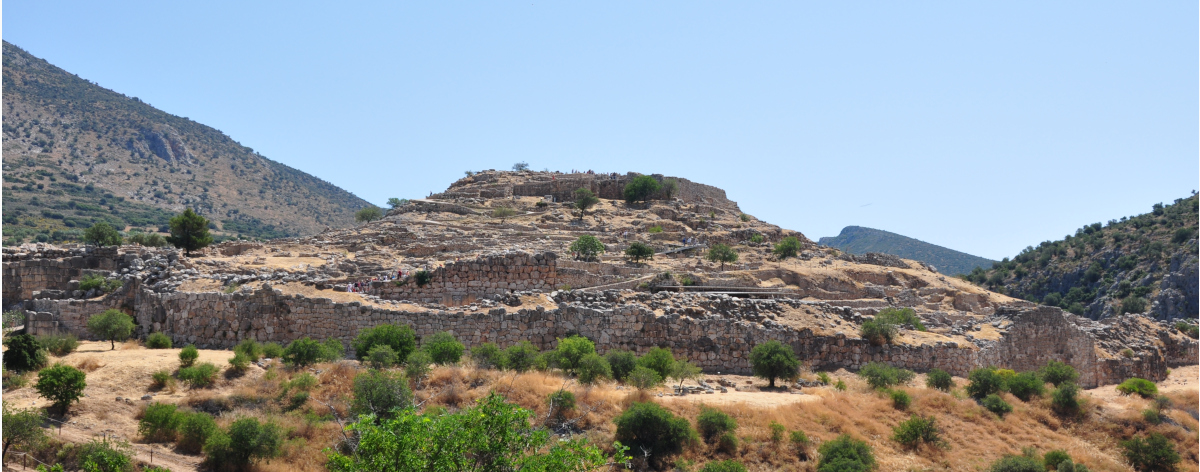
Your Holiday Essentials
4th - 14th September 2026
(11 Days)
3/4-star hotels, meals as indicated, drinks with dinner, all entrance fees, tour manager and expert historian throughout, all internal travel, optional travel from UK
Expert Historian: Dr Harry Sidebottom
Prices:
Standard price: £4,575
Incl. travel from UK: £4,975
Room sole occupancy supplement: £725
Non-refundable deposit: £300
Booking open
Interested in this tour but not ready to book? Register your interest using the link below and we will keep you updated on the progress of the tour.
|
|
Tour Introduction
This 10-night and 11-day tour of the Greek Peloponnese takes in the best Classical sites in this area in the company of an expert historian who will provide a cutting-edge insight into this fascinating region. On this wide-ranging tour you will deepen your knowledge of the archaeology, history, language and culture of the many peoples who have inhabited the Peloponnese from the amazing Bronze Age Mycenaean civilisation through to the city states of the Classical era and Hellenistic and Roman periods. Starting in Athens we explore the amazing Classical heritage of the ancient world’s foremost city including the Acropolis and Agora. Moving to our base in Naufplion we visit the remarkable Mycenaean cities of Tiryns and Mycenae with their huge cyclopean masonry and sophisticated palace culture. At Epidaurus we marvel over the Greek world’s best-preserved theatre and at Corinth enjoy the picturesque ruins beneath the rock of Acrocorinth. We also pay attention to smaller yet still significant sites such as Asine and Bassae. The tour moves through stunning landscapes to Pylos then to Olympia where we explore the origins of the Olympic Games. At Delphi we visit the site of the famous oracle, consulted over important decisions throughout the ancient world. The tour returns to Athens and the National Archaeology Museum whose rich collections provide a fitting finale to the tour. Travelling by luxury coach and enjoying comfortable hotels and superb food this is a tour not to be missed.
Background
The Peloponnese has been inhabited since prehistory but it was only during the Bronze Age (1750 – 1050 BC) that a distinctively Greek civilisation emerged in the form of the Mycenaeans. Noted for their sturdy cyclopean walls, advanced palace culture, works of art and writing systems the Mycenaeans dominated the Argolid from their bases at Mycenae and Tiryns. By the 14th century BC they controlled the entire Peloponnese, much of mainland Greece and its islands, and Crete. The civilisation mysteriously collapsed in the 12th century BC and a plethora of theories exist to explain this sudden demise. By the next millennium Corinth emerged as the dominant city in the peninsula and in the 5th century BC the region became embroiled in the Peloponnesian Wars. The ensuing centuries were marked by further inter-city rivalries and conflicts and the formation of the Achaean League of 12 peninsula cities. The League stood up against Sparta and even Macedon but in the 2nd century BC signed a treaty with the growing power of Rome. Tired of the region’s recalcitrance Rome invaded the peninsula destroying Corinth (146 BC) and creating the province of Achaea. The latter stages of the Classical period are dominated by Rome until the Peloponnese was overrun by Germanic and Gothic tribes in the 2nd century AD.
Highlights
• Explore the Classical sites of Athens including the Acropolis, Acropolis Museum and Kerameikos Cemetery
• Visit the incredible Mycenaean sites of Mycenae and Tiryns
• Stay at the beautiful Peloponnesian towns of Naufplion and Pylos
• Visit the amazing mountaintop Temple of Apollo at Bassae
• Learn about the origins of the Olympic Games at Olympia
• Explore some of Greece’s best museums including the National Archaeological Museum, Athens and those at Naufplion and Pylos
What's Included
- 3 & 4 Star Hotels
- Return flights from London (optional)
- Expert historians throughout providing a daily variety of talks, presentations and Q&A
- Dedicated Tour Manager
- Modern, comfortable, air-conditioned coach
- Two drinks i,e wine or beer at each dinner
- Two drinks i,e wine or beer at each dinner and a welcome drink on first evening
- Meals as indicated in the itinerary
- Entrance fees for sites included in itinerary
- The company of like-minded travelers
- Helpful and friendly travel advice
- Tour information booklet
- Access to the Cultural Experience app
"The three towns I love best are Argos, Sparta and Mycenae of the broad streets."
The goddess Hera as she claims herself the protector of the Argolis in The Iliad (IV, 50–52)
Itinerary
Day 1
Fly from London Heathrow and/or assemble at Athens hotel for two nights. (D).
Day 2
A full day exploring Classical Athens on foot and using the metro. Starting at the Acropolis, the dominant rocky outcrop which perfectly symbolises the ancient Greek world, we visit a trove of magnificent remains including the Parthenon, Erechtheon, Theatre of Dionysus and Temple of Athena. Our understanding of this incredible ensemble is enhanced at the nearby Acropolis Museum with its rich collection of sculptures, stonework and artefacts. Our day is completed at the Kerameikos Cemetery where the city buried its dead from the 7th century BC until Roman times. (B, D).
Day 3
The morning is spent at the ancient Agora, the convivial focus in Athens for business, politics, law, trade and, of course, discussing philosophy. The agora was the heart of Athenian democracy and its importance now resonates around the world. We visit the Temple of Hephaistos and the Stoa of Attalos, the latter housing a museum of Athenian democracy. We leave Athens and drive into the Peloponnese to the city of Naufplion where we check in to our hotel for four nights. In the afternoon we visit he imposing Palamidi Fortress, built by the Venetians between 1711 and 1714, with its superb views over the Argonic Gulf. (B, D).
Day 4
We drive north to visit the Heraion of Argos, a sanctuary devoted to Hera - goddess of marriage, women, and family. With its origins in the 8th century BC the site attests to the growth in population and wealth in the Argive plain after the Greek ‘Dark Ages’. We move on to explore the remarkable site of Mycenae, with its huge cyclopean masonry, and echoes of Homer’s heroes (16th–13th centuries BC) and the legendary King Agamemnon. Here we marvel at the Treasury of Atreus beehive tomb and the amazing Lion Gate. The day concludes at Nemea, site of the famous Nemean Games of antiquity, with its remains of an ancient stadium (4th century BC) able to accommodate 40,000 spectators. (B, D).
Day 5
Our morning starts at the Archaeological Museum of Naufplion where we admire the fine collection from the Argolid area including Mycenaean finds and spectacular armour found in a chamber tomb at Dendra dating to the 15th century BC. We then travel north to Corinth where we explore the ruins of this prosperous Greek city which reached its zenith in the 7th to 6th centuries BC and was later visited by Saint Paul. We drive to the summit of Acrocorinth where we get a superb perspective on the city and its strategic place near the Corinthian Isthmus. (B, D).
Day 6
Our Mycenaean theme continues this morning with a visit to Tiryns, mythical birthplace of Heracles and an excellent example of Mycenean palatial architecture dating from the 13th century BC. We then move to the site of Asine mentioned by Homer in his Catalogue of Ships. Partly a rocky site above the sea the city revealed an important Mycenaean necropolis. After a well-earned lunch we proceed to Epidauros which has the best-preserved theatre in the Greek world. A centre for the worship of Asclepios, god of medicine, Epidaurus was also a famous location for healing rituals. (B, D).
Day 7
We leave Naufplion and travel across the beautiful landscape of rural Arcadia to the impressive ruins of Messene. Here we admire the remains of the city walls – once over 9km long – and theatre, stadium, council chamber and market. We then descend to the coast at Pylos and check into our hotel for the night. In the late afternoon we enjoy a visit to the Archaeological Museum with its informative range of exhibits tracing the history of the area from prehistoric to Roman times. The museum is located within the Niokastro Fortress and we finish the day enjoying lovely views over Navarino Bay and the beautiful coastal landscape, referred to by Homer as ‘sandy Pylos’. (B, D).
Day 8
We drive to the nearby Palace of Nestor, Homer’s ‘shepherd of the people’, and the shrewdest warrior fighting at Troy. This is the best-preserved Mycenaean palace ever excavated with its fine ensemble of reception and storage rooms, workshops, baths, light wells, and even a sewage system. Our journey continues along the coast then into the hills on a spectacular road to the finely preserved 5th century BC Temple of Apollo (in a tent for protection) on a mountain top at Bassae (1,131m). We continue through stunning landscapes to Olympia and our hotel for the night. (B, D).
Day 9
Our morning is spent at the site of Olympia, home of the first Panhellenic Games, and important centre for the worship of Zeus. Among the many superb remains here are the gymnasium, stadium and Pelopion temple, named after Pelops the mythical chariot racing king. We leave Olympia and make the scenic drive to Delphi over the modern Rio - Antirrio Bridge spanning the historic Gulf of Corinth. Hotel in Delphi – 1 night. (B, D).
Day 10
The morning is spent at the site of Delphi, home of the famous oracle, and thought by the ancient Greeks to be the centre of the world. Set amongst the lush scenery of Mount Parnassus, Delphi boasts several important buildings including the iconic tholos of Athena Pronaia, a masterpiece of classical architecture, and the impressive Treasury of the Athenians. We continue to Athens and our hotel for the tour’s last night. (B, D).
Day 11
Our last morning is spent in the National Archaeological Museum with its amazing collection of artefacts spanning prehistory to late antiquity. Among the highlights are finds from the tombs at Mycenae including sparkling gold funeral diadems and the mysterious ‘Mask of Agamemnon’.
Travel to Athens airport for return flight to London Heathrow or perhaps extend your stay in Greece. (B).
Recommended Reading List
- Exploring the Sacred Landscape of the Ancient Peloponnese: Cults and Sacred Places
- The History of the Peloponnesian War (Classics) The History of the Peloponnesian War
- The Peloponnese: The Hidden Greece of Ancient Wonders, Mythical Legends, and Medieval Strongholds

Dr Harry Sidebottom
Dr Harry Sidebottom was educated at various schools and universities, including Oxford, where he took his Doctorate in Ancient History at Corpus Christi College. In similar fashion he has taught at various universities including Oxford, where he is now Fellow and Director of Studies in Ancient History at St Benets Hall, and Lecturer in Ancient History at Lincoln College.
Your Holiday Essentials
4th - 14th September 2026
(11 Days)
3/4-star hotels, meals as indicated, drinks with dinner, all entrance fees, tour manager and expert historian throughout, all internal travel, optional travel from UK
Expert Historian: Dr Harry Sidebottom
Prices:
Standard price: £4,575
Incl. travel from UK: £4,975
Room sole occupancy supplement: £725
Non-refundable deposit: £300
Booking open
Interested in this tour but not ready to book? Register your interest using the link below and we will keep you updated on the progress of the tour.
|
|











